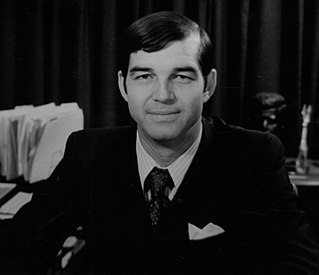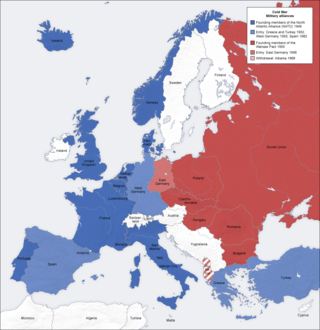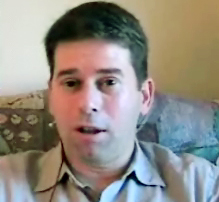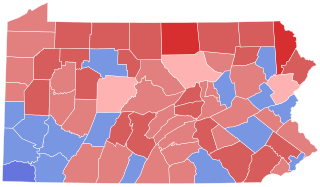Related Research Articles

The Republican Party, also referred to as the GOP, is one of the two major contemporary political parties in the United States. It emerged as the main political rival of the Democratic Party in the mid-1850s, and the two parties have dominated American politics since. The GOP was founded in 1854 by anti-slavery activists who opposed the Kansas–Nebraska Act, which allowed for the potential expansion of chattel slavery into the western territories. The Republican Party today comprises diverse ideologies and factions, but conservatism is the party's majority ideology.
Right-wing politics describes the range of political ideologies that view certain social orders and hierarchies as inevitable, natural, normal, or desirable, typically supporting this position based on natural law, economics, authority, property or tradition. Hierarchy and inequality may be seen as natural results of traditional social differences or competition in market economies.
Geopolitics is the study of the effects of Earth's geography on politics and international relations. While geopolitics usually refers to countries and relations between them, it may also focus on two other kinds of states: de facto independent states with limited international recognition and relations between sub-national geopolitical entities, such as the federated states that make up a federation, confederation, or a quasi-federal system.
A Red Scare is the promotion of a widespread fear of a potential rise of communism, anarchism or other leftist ideologies by a society or state. The term is most often used to refer to two periods in the history of the United States which are referred to by this name. The First Red Scare, which occurred immediately after World War I, revolved around a perceived threat from the American labor movement, anarchist revolution, and political radicalism. The Second Red Scare, which occurred immediately after World War II, was preoccupied with the perception that national or foreign communists were infiltrating or subverting American society and the federal government. Following the end of the Cold War, unearthed documents revealed substantial Soviet spy activity in the United States. The name refers to the red flag as a common symbol of communism.

Zell Bryan Miller was an American author and politician from the state of Georgia. A member of the Democratic Party, Miller served as lieutenant governor from 1975 to 1991, 79th governor of Georgia from 1991 to 1999, and as U.S. senator from 2000 to 2005.

Bill Clinton's tenure as the 42nd president of the United States began with his first inauguration on January 20, 1993, and ended on January 20, 2001. Clinton, a Democrat from Arkansas, took office following a decisive election victory over Republican incumbent president George H. W. Bush and independent businessman Ross Perot in 1992. Four years later, in 1996, he defeated Perot again and Republican nominee Bob Dole, to win re-election; Clinton was succeeded by Republican George W. Bush, who won the 2000 presidential election.

Containment was a geopolitical strategic foreign policy pursued by the United States during the Cold War to prevent the spread of communism after the end of World War II. The name was loosely related to the term cordon sanitaire, which was containment of the Soviet Union in the interwar period.
A party system is a concept in comparative political science concerning the system of government by political parties in a democratic country. The idea is that political parties have basic similarities: they control the government, have a stable base of mass popular support, and create internal mechanisms for controlling funding, information and nominations.
In the politics of the United States, party switching is any change in party affiliation of a partisan public figure, usually one who is currently holding elected office. Use of the term "party switch" can also connote a transfer of holding power in an elected governmental body from one party to another.
John Francis Cronin (1908–1994) was a Catholic priest of the Society of Saint Sulpice, who was an early advisor on anticommunism to freshman U.S. Representative Richard M. Nixon.

Donald L. Fowler was an American political scientist, professor, and political operative who served as National Chair of the Democratic National Committee (DNC) from 1995 to 1997, alongside Chris Dodd as General Chairman during this same period.

The values and ideals of republicanism are foundational in the constitution and history of the United States. As the United States constitution prohibits granting titles of nobility, republicanism in this context does not refer to a political movement to abolish such a social class, as it does in countries such as the UK, Australia, and the Netherlands. Instead, it refers to the core values that citizenry in a republic have, or ought to have.

Labor unions represent United States workers in many industries recognized under US labor law since the 1935 enactment of the National Labor Relations Act. Their activity today centers on collective bargaining over wages, benefits, and working conditions for their membership, and on representing their members in disputes with management over violations of contract provisions. Larger trade unions also typically engage in lobbying activities and electioneering at the state and federal level.

The Republican Party, also referred to as the GOP, is one of the two major political parties in the United States. It is the second-oldest extant political party in the United States after its main political rival, the Democratic Party.

The Democratic Party is one of two major contemporary political parties in the United States. Founded in 1828, it was predominantly built by Martin Van Buren, who assembled politicians in every state behind war hero Andrew Jackson, making it the world's oldest active political party. The party is a big tent of competing and often opposing viewpoints, but modern American liberalism, a variant of social liberalism, is the party's majority ideology. The party also has notable centrist, social democratic, and left-libertarian factions. Its main political rival has been the Republican Party since the 1850s.
Jerry Fincher Hough was an American political scientist. Hough was the James B. Duke Professor of Political Science at Duke University and his research focused on domestic American politics, the Soviet Union, the democratization of Russia, and American efforts at nation-building. Hough is a part of the "revisionist school" on Soviet history, maintaining that the level of terror was much exaggerated and that the Soviet Union was institutionally weak under Joseph Stalin, among other things. He saw the focus of his research and teaching as "the relationship of long term economic development and political institutions". In his final decade he focused on "the American experience in order to better understand the way that states, markets, and democracies develop and the way in which effective and stable ones can be created and maintained."

This is an English language bibliography of scholarly books and articles on the Cold War. Because of the extent of the Cold War, the conflict is well documented.

Michael J. Green is an American Japanologist who is the senior vice president for Asia, Japan Chair, and Henry A. Kissinger Chair at the Center for Strategic and International Studies (CSIS), as well as Director of Asian Studies and Chair in Modern and Contemporary Japanese Politics and Foreign Policy at Georgetown University. He served as Special Assistant to the President for National Security Affairs and Senior Director for Asian Affairs at the National Security Council (NSC) from January 2004 to December 2005 under George W. Bush. He joined the NSC in April 2001 as director of Asian affairs with responsibility for Japan, Korea, and Australia/New Zealand. From 1997 to 2000, he was senior fellow for Asian security at the Council on Foreign Relations, where he directed the Independent Task Force on Korea and study groups on Japan and security policy in Asia. He served as senior adviser to the Office of Asia Pacific Affairs at the Department of Defense in 1997 and as consultant to the same office until 2000.

Daniel W. Drezner is an American political scientist. He is known for his scholarship and commentary on International Relations and International Political Economy.

The 1950 Pennsylvania gubernatorial election was held on November 7. For the twenty-second time in twenty-five elections, the Republican candidate was victorious, but by a much smaller than usual margin. Superior Court Judge John S. Fine defeated Democrat Richardson Dilworth, the City Controller of Philadelphia. This election marked the last time until 2022 that a political party would win three consecutive gubernatorial elections in Pennsylvania.
References
- ↑ "Lycoming College Faculty". Lycoming College . Retrieved February 6, 2016.
- ↑ Roskin, Michael G. (1994). National Interest: From Abstraction to Strategy. Carlisle, PA: U.S. Army War College. pp. iii.
- ↑ "Dr. Michael G. Roskin". Strategic Studies Institute . Retrieved February 6, 2016.
- ↑ "Overview of recent Russian history, Rockland Library". Penobscot Bay Pilot . September 26, 2014. Retrieved February 6, 2016.
- ↑ Roskin, Michael A. (1 September 2020). "Who's Anti-Russia Now?". The Free Press. Retrieved 2 September 2020.